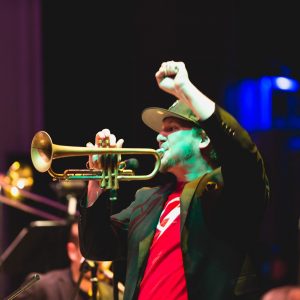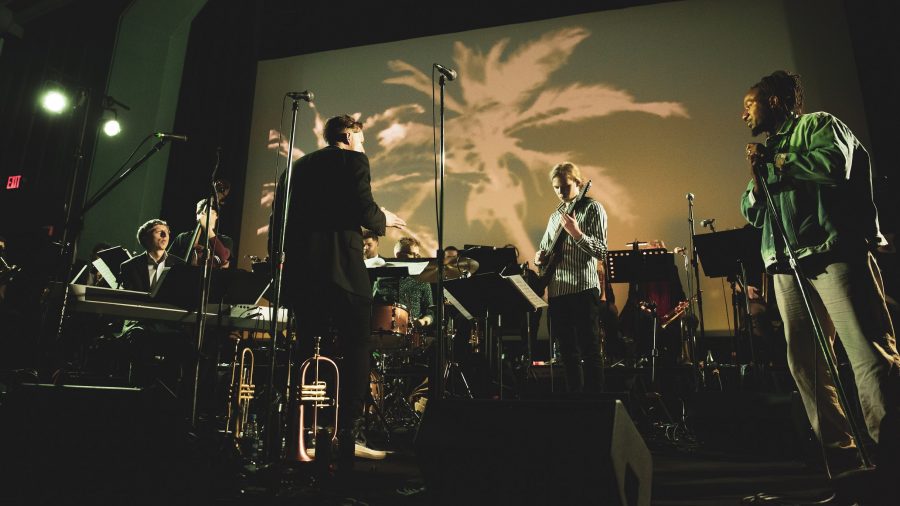
Adam Meckler and Jared Anderson generously shared their knowledge on Husky Bites, a free, interactive Zoom webinar hosted by Dean Janet Callahan. Here’s the link to watch a recording of his session on YouTube. Get the full scoop, including a listing of all the (60+) sessions at mtu.edu/huskybites.
What are you doing this Monday, April 5 at 6 pm ET? Join Dean Janet Callahan and special guest Adam Meckler, assistant professor of Visual and Performing Arts and director of Jazz Studies at Michigan Technological University. He’s also a trumpeter, composer, bandleader, songwriter, multi-instrumentalist—and owner/co-founder/CEO of Gig Boss, a handy app for organizing a freelance gig/business.
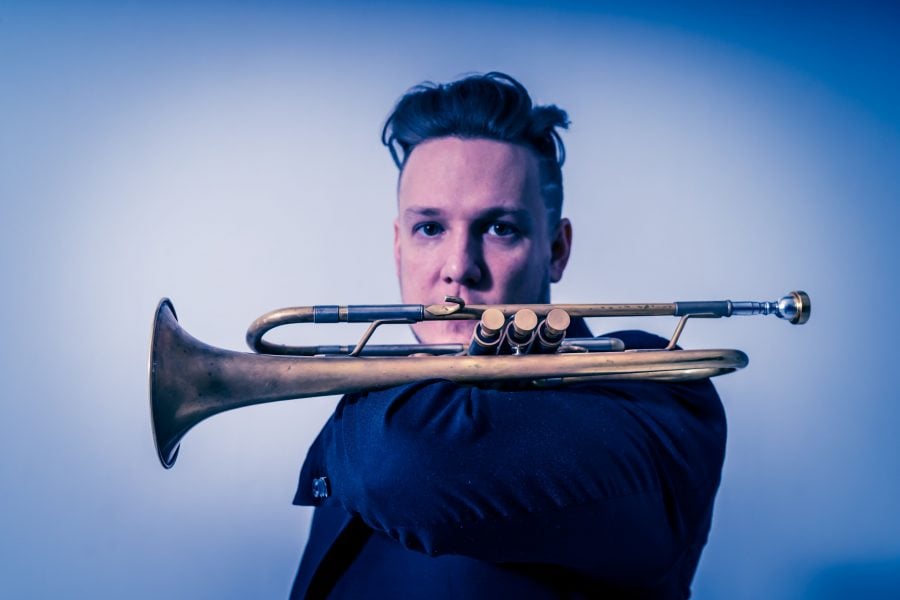
During Husky Bites, Prof. Meckler will be talking about the shift of the music economy from selling albums to streaming, tools for young musicians looking to build a career in music, and ways for musicians to carve out passive income so they can focus on the music.
Joining in for Husky Bites on Monday will be Jared Anderson, chair of Michigan Tech Visual and Performing Arts. Prof. Anderson conducts conScience: Michigan Tech Chamber Singers, and the internationally-touring Michigan Tech Concert Choir.

Meckler joined the faculty at Michigan Tech Fall of 2019 as Director of Jazz Studies, after a decade-long career as a freelance trumpeter, composer, and educator in Minneapolis, Minnesota. The Adam Meckler Orchestra (AMO), is the 18-piece big band that plays his original compositions. AMO’s debut album, ‘When the Clouds Look Like This’ was listed among the Best 2014 Jazz Releases by iTunes.
In 2019 AMO released ‘Magnificent Madness’ just before Prof. Meckler packed up his family to move to Houghton. Though the band is founded in the traditions of jazz, it blends soul, R&B, hip-hop, and pop music to achieve a unique and grooving sound. (Listen to a song from Magnificent Madness here.)
Another thing Meckler offers online are instructional videos for the trumpet. This light, fun, easy to follow video, “How to Play the Trumpet – First Five Notes,” will get you off to a great start, at any age.
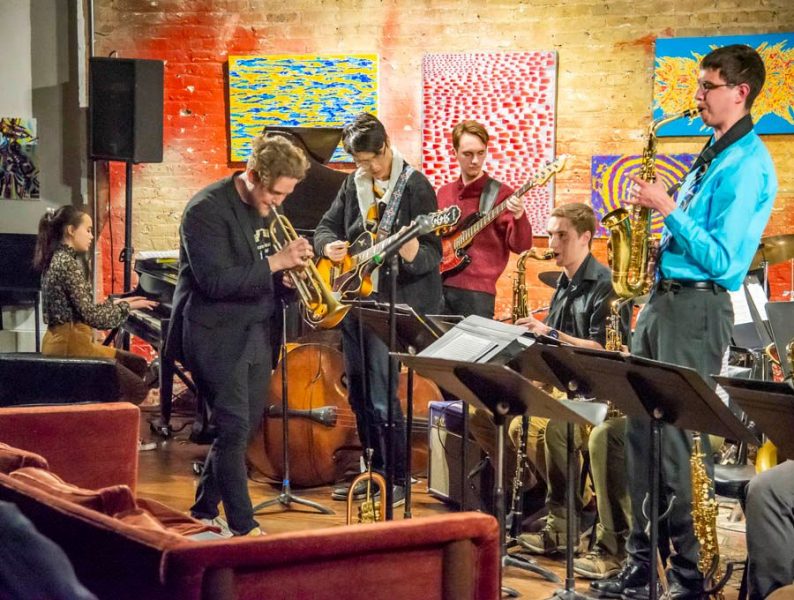
Prof. Meckler, how did you first get involved in music? What sparked your interest?
“My dad sang in choirs when I was growing up. My mom was a violinist before I was born. She broke her pinky, so never got to hear her perform. I grew up hearing a lot of orchestral music, plus Motown, R&B, Soul, and 50s doo-wop. At around age 7 or 8 I took guitar lessons with my church pastor. Once I turned 10, I picked up a trumpet. I’ve always loved music. In fact I used to hum myself to sleep at night. My younger brother even moved out of our bedroom to sleep on the basement couch, just to get away from the sound!”
Family and hobbies?
“I collaborate and write music with my wife, Jana Nyberg. She’s a vocalist, flautist, and band director. Jana appeared on Season 10 of American Idol and has released four full-length albums to date. She was a longtime music teacher in the Twin Cities, too.
“Together we have two sons, Auggie is almost 6 and Hobbes is 3. Both our kids love to play the trumpet. They both have great rhythm. They both can sing. Music is fun for just about everything in life. We make up songs. We have one for taking our vitamin gummies, a song for taking a bath, and one for wiggling off our snow clothes. We are constantly singing. It’s a fun house to grow up in.
“Auggie and Hobbes listen to me practice the trumpet, all the fundamental boring parts, every day. They see my microphone setup here at home, and see me collaborating with other artists. My philosophy is: don’t force your dreams on your children. Still, I’m living my dream, and Jana, too, so they experience a lot of music with us.
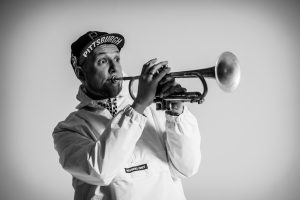
“There was a time I was practicing for West Side Story at the Guthrie Theater in Minneapolis. I played both the main role and a sub, so I had to learn two parts, with some real screaming on my horn. That was no problem for them. Oggie and Hobbs are used to hearing me playing full volume, even at bedtime. But just the other night, Jana texted me at about 11 pm while I was practicing in the basement, to say: ‘Adam could you please keep it down? I need to get some sleep!'”
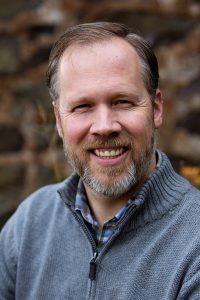
Prof. Jared Anderson is a strong advocate for the transformative power of ensemble singing in building caring communities. As Director of Choral Activities at Michigan Tech, he conducts Michigan Tech choirs and teaches courses in music theory, group voice, and basic musicianship. He also coaches singers in Tech theater productions.
Anderson has conducted ensembles in Utah, Minnesota, Wisconsin and Michigan, ensembles of all sizes and voicing, with singers of many different ages and backgrounds. An active choral himself singer himself, Anderson has performed in venues and festivals worldwide.
Prof. Anderson, how did you first get involved in music? What sparked your interest?
“I grew up in Orem, Utah, and come from a big family. My mom played in dance bands, and so each of us, me and my brothers and sisters, had to play an instrument and do things. I played piano and she insisted that I not quit until graduating from high school, but that was never a question—I always loved it. One of my fondest memories is when my dad played William Tell overture and we’d all run around like The Lone Ranger in the house.”
I always thought I’d be a doctor like my dad. In college I studied piano. I thought, no problem—I’ll major in piano and then go to med school. But I never ended up taking any pre-med courses, not even one!” From there, I moved into singing and choirs. There’s just something about being in a community and conducting that got me hooked.
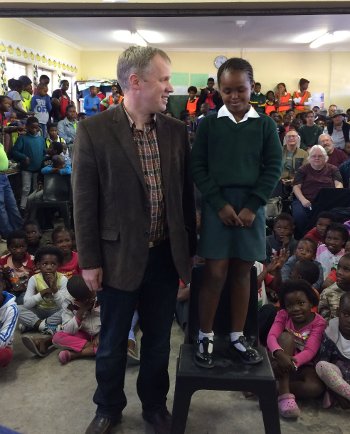
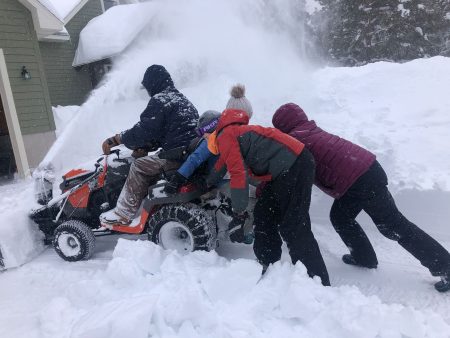
What is your most meaningful and memorable choral experience thus far?
While earning my master’s degree, I conducted the Utah State Prison choir on Tuesday nights. Sometimes there’d be 20 guys and other times just a few, depending on lockdown. I’d enter the prison by going through all the checkpoints, and then I’d be alone, walking over to the prison chapel where we rehearsed. We sang a lot together, and they loved to sing. It was a medium security prison, so I’d joke – ‘Hey, I know you’re all here because you forgot to pay your taxes in 1984!’ But it was a hardened environment. I could see how singing made a difference in their lives, by how they interacted with each other after a few songs.
Be sure to check out Prof. Anderson’s full bio here.
